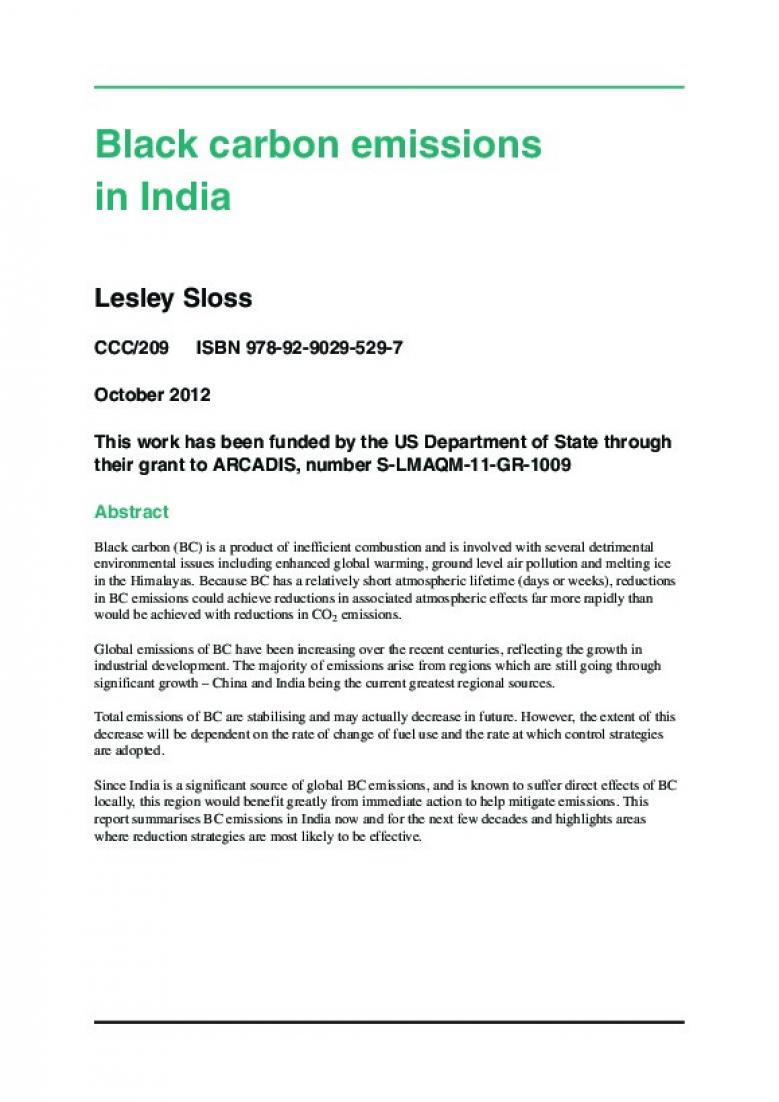CCC/209 ISBN 978-92-9029-529-7
October 2012
This work has been funded by the US Department of State through
their grant to ARCADIS, number S-LMAQM-11-GR-1009
Abstract
Black carbon (BC) is a product of inefficient combustion and is involved with several detrimental
environmental issues including enhanced global warming, ground level air pollution and melting ice
in the Himalayas. Because BC has a relatively short atmospheric lifetime (days or weeks), reductions
in BC emissions could achieve reductions in associated atmospheric effects far more rapidly than
would be achieved with reductions in CO2 emissions.
Global emissions of BC have been increasing over the recent centuries, reflecting the growth in
industrial development. The majority of emissions arise from regions which are still going through
significant growth – China and India being the current greatest regional sources.
Total emissions of BC are stabilising and may actually decrease in future. However, the extent of this
decrease will be dependent on the rate of change of fuel use and the rate at which control strategies
are adopted.
Since India is a significant source of global BC emissions, and is known to suffer direct effects of BC
locally, this region would benefit greatly from immediate action to help mitigate emissions. This
report summarises BC emissions in India now and for the next few decades and highlights areas
where reduction strategies are most likely to be effective.
| Attachment | Size |
|---|---|
| 353.96 KB |


